How to Meditate for Developing Emotional Control and Stability sets the stage for this enthralling narrative, offering readers a glimpse into a story that is rich in detail with motivational lecture style and brimming with originality from the outset.
Embark on a journey of self-discovery and inner peace as we delve into the transformative power of meditation in cultivating emotional stability and control.
Introduction to Meditation for Emotional Control: How To Meditate For Developing Emotional Control And Stability
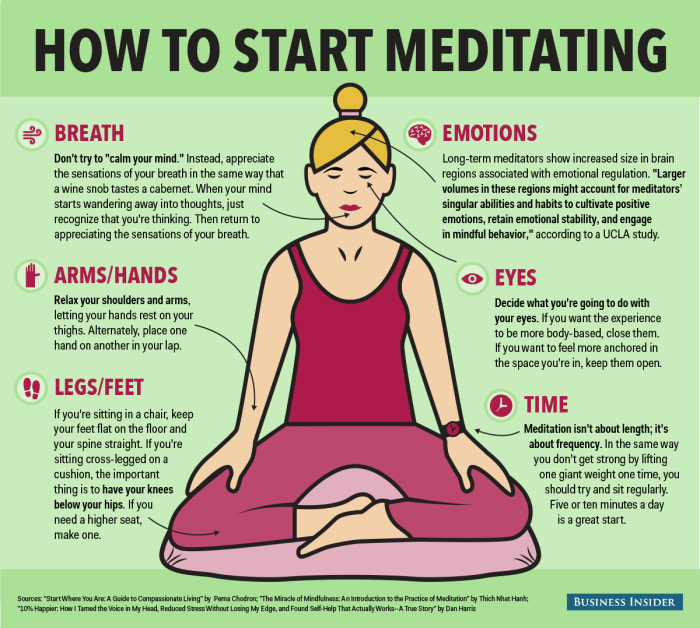
Emotional control in meditation refers to the ability to manage and regulate our emotions, allowing us to respond to situations in a calm and balanced manner. It involves being aware of our emotions without letting them overpower us.
Emotional stability is crucial for overall well-being as it impacts our mental, emotional, and physical health. When we have control over our emotions, we can navigate through life’s challenges more effectively and maintain a sense of inner peace.
Experience mental clarity and rejuvenation with the guidance on How to Meditate for Releasing Mental Fatigue and Clarity. Let go of stress and fatigue as you find peace within.
How Meditation Helps in Developing Emotional Control and Stability
- Meditation allows us to observe our emotions without judgment, helping us understand the root causes of our reactions.
- Through regular practice, meditation helps in reducing stress and anxiety, which are common triggers for emotional outbursts.
- By focusing on the present moment during meditation, we learn to let go of negative thoughts and emotions, promoting a more positive mindset.
Benefits of Incorporating Meditation into Daily Routine
- Improved self-awareness and emotional intelligence.
- Enhanced ability to handle stressful situations with composure.
- Better mental clarity and focus.
- Enhanced overall well-being and inner peace.
Understanding the Basics of Meditation
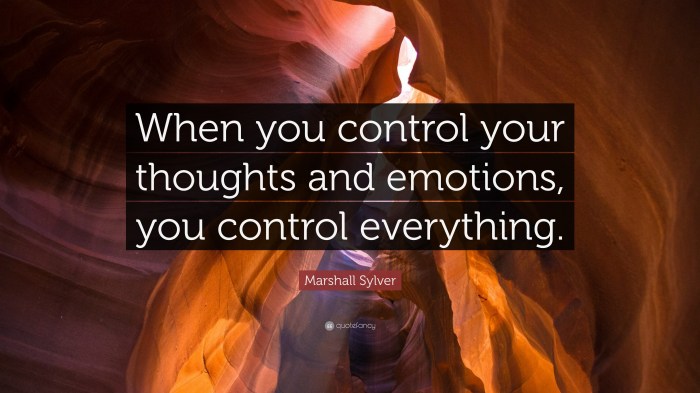
Meditation is a powerful tool for developing emotional control and stability. By understanding the basics of meditation, you can harness its benefits to manage your emotions effectively.
Different Meditation Techniques
- Guided Meditation: Involves following the instructions of a teacher or audio guide to focus your mind and emotions.
- Mantra Meditation: Repeating a calming phrase or word to quiet the mind and promote emotional balance.
- Body Scan Meditation: Bringing awareness to different parts of the body to release tension and connect with emotions.
Breathing Exercises for Emotional Stability
- Deep Breathing: Inhaling deeply through the nose and exhaling slowly through the mouth can calm the nervous system and regulate emotions.
- Equal Breathing: Inhaling and exhaling for the same duration can help create a sense of balance and stability in emotions.
- Diaphragmatic Breathing: Focusing on breathing deeply into the diaphragm can reduce stress and anxiety, leading to emotional control.
Role of Mindfulness in Managing Emotions
- Mindful Awareness: Being fully present in the moment can help you observe and understand your emotions without judgment, leading to better emotional regulation.
- Acceptance: Embracing your emotions as they are without trying to change them can foster emotional stability and resilience during meditation.
Tips for Beginners
- Start Small: Begin with just a few minutes of meditation each day and gradually increase the duration as you build your practice.
- Find a Quiet Space: Choose a peaceful environment free from distractions to enhance your focus and emotional awareness during meditation.
- Be Patient: Allow yourself to experience the ups and downs of meditation without getting discouraged, as emotional control takes time and practice to develop.
Techniques for Developing Emotional Control
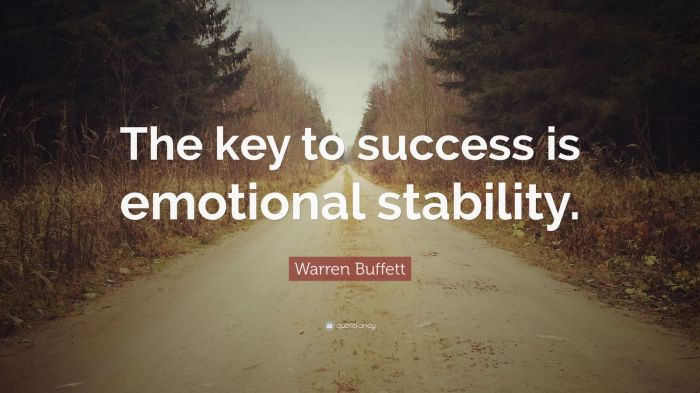
Emotional stability is crucial for overall well-being, and meditation can be a powerful tool to help cultivate control over our emotions. Here are some effective techniques to develop emotional control through meditation:
Visualization Techniques for Enhancing Emotional Stability
Visualization can be a powerful tool in meditation to enhance emotional stability. By picturing calming scenes or positive outcomes in your mind, you can shift your focus away from negative emotions and promote a sense of peace and tranquility.
Embark on a journey to inner peace and balance by learning How to Meditate for a Peaceful, Balanced Life. Discover the power of meditation in calming the mind and nurturing your soul.
Practice of Loving-Kindness Meditation for Cultivating Compassion and Empathy
Loving-kindness meditation involves directing feelings of love and compassion towards oneself and others. This practice can help in cultivating empathy, understanding, and kindness towards oneself and others, leading to improved emotional control and stability.
Body Scan Meditation for Recognizing and Releasing Emotions
Body scan meditation involves focusing on different parts of the body, bringing awareness to any sensations or emotions that arise. By recognizing and acknowledging these emotions, you can learn to release them and achieve a greater sense of emotional balance and control.
Enhance your emotional intelligence through meditation techniques outlined in How to Meditate for Increasing Your Emotional Intelligence. Cultivate self-awareness and empathy for a more harmonious life.
Mantra Meditation for Calming the Mind and Regulating Emotions
Mantra meditation involves repeating a word or phrase silently or aloud to calm the mind and regulate emotions. By focusing on the mantra, you can create a sense of inner peace and stability, helping you to navigate through challenging emotions with more ease and control.
Tips for Consistency and Progress
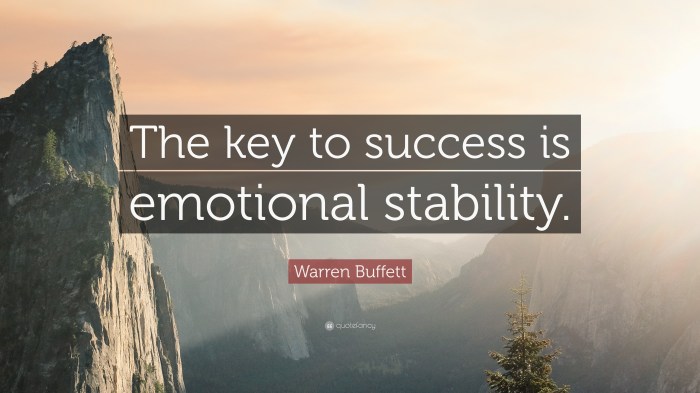
Maintaining a regular meditation practice is crucial for developing emotional control and stability. Consistency helps in building a routine and allows you to reap the full benefits of meditation. Patience and persistence are key as emotional growth takes time and effort.
Setting Intentions
- Before starting your meditation session, take a moment to set intentions for what you hope to achieve or work on during that time.
- Setting intentions can help you stay focused and create a sense of purpose for your practice.
- Whether it’s cultivating compassion, increasing self-awareness, or managing stress, having clear intentions can enhance your meditation experience.
Self-Reflection for Tracking Progress, How to Meditate for Developing Emotional Control and Stability
- After each meditation session, take a few moments to reflect on how you felt during the practice.
- Notice any changes in your emotional state, reactions, or thoughts compared to when you started.
- Self-reflection allows you to track your progress, identify patterns, and understand how meditation is influencing your emotional control and stability.
Incorporating Meditation into Daily Life
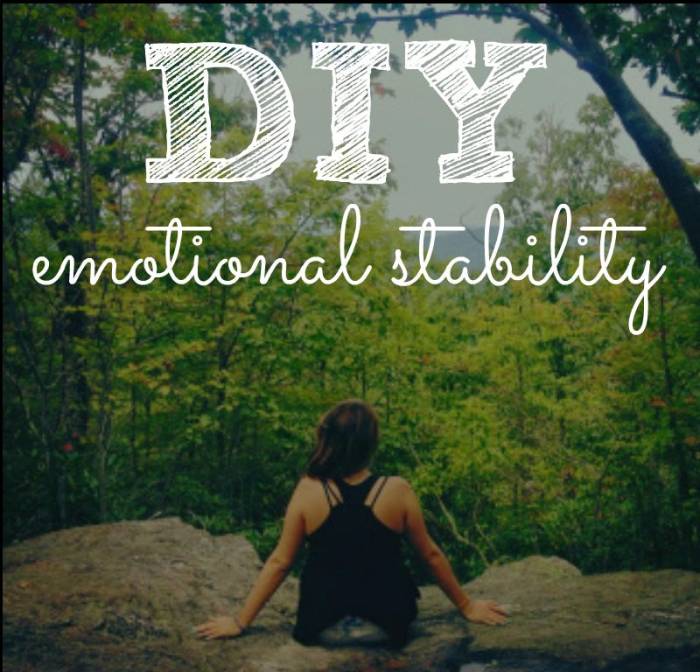
Integrating meditation into our daily routine can be challenging, especially with a busy schedule. However, it is essential for emotional control and stability. Here are some practical ways to make meditation a part of your everyday life:
Short Meditation Sessions
- Set aside a few minutes in the morning or before bed for a quick meditation session.
- Use breaks during the day to practice mindfulness and breathing exercises.
- Try walking meditation while commuting or during short breaks at work.
Mindfulness Practices Outside of Formal Sessions
- Practice mindful eating by focusing on the taste, texture, and smell of your food.
- Engage in mindful listening during conversations to improve communication and understanding.
- Use mindfulness to stay present and calm in stressful situations throughout the day.
Benefits of Using Meditation for Managing Stress
- Meditation helps reduce stress levels by promoting relaxation and calming the mind.
- Regular practice improves emotional regulation, leading to better stress management.
- It enhances self-awareness, allowing you to recognize triggers and respond more mindfully.
Improving Relationships and Communication Skills
- Meditation cultivates empathy and compassion, improving relationships with others.
- Enhanced emotional control leads to better conflict resolution and understanding in relationships.
- Clearer communication skills develop through increased focus and presence in interactions.
In conclusion, mastering your emotions through meditation is not just a practice, but a way of life that leads to profound growth and fulfillment. Embrace this journey with open arms and watch as emotional control and stability become your superpowers in navigating life’s challenges.